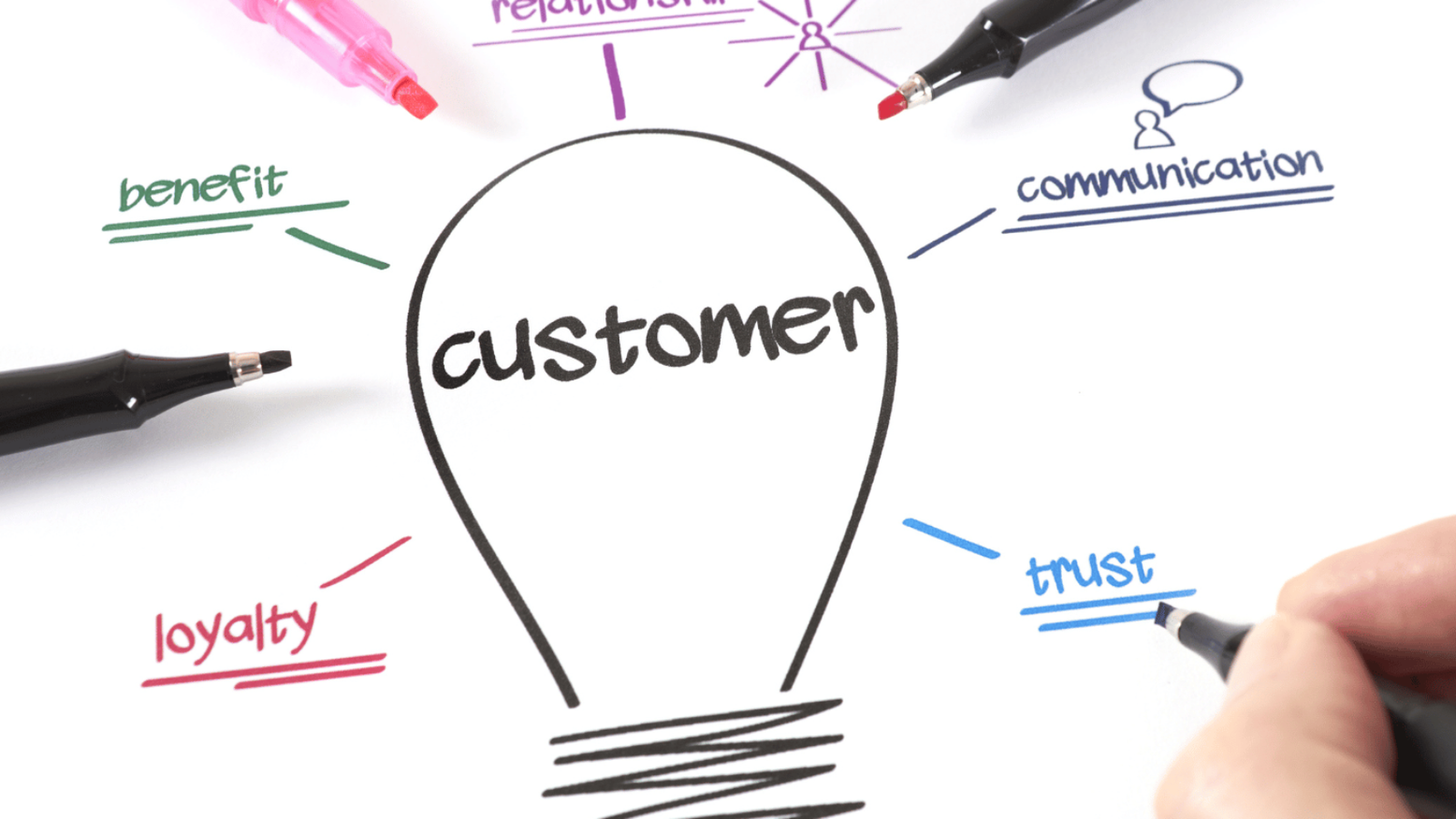Table of Contents
Are you tired of struggling to close sales and watching potential customers slip through your fingers? If so, it’s time to master the art of persuasion and boost your sales to new heights. In this article, we will dive deep into the tactics and strategies you can implement to become a master persuader.
Understanding the Art of Persuasion
Persuasion is the ability to convince someone to take a specific action or adopt a particular belief. It involves understanding human psychology, crafting compelling messages, and using persuasive techniques to influence others. To become a skilled persuader, you must first understand the principles behind it.
One of the foundational principles of persuasion is reciprocity. When you give something of value to others, they feel obliged to reciprocate. This can be as simple as offering a free sample, providing helpful information, or giving a discount. By leveraging reciprocity, you can create a sense of indebtedness in your customers, increasing the likelihood of a sale.
Another essential aspect of persuasion is social proof. People are more likely to take action if they see others doing the same. By showcasing testimonials, reviews, and case studies, you can demonstrate that your product or service is trusted and valued by others. Social proof helps build credibility and trust, which are crucial for persuasion.
The Psychology of Persuasion
Understanding human psychology is key to effective persuasion. Several psychological principles can be leveraged to influence others. One such principle is scarcity. People have a fear of missing out, so when they perceive something to be limited or exclusive, they are more motivated to take action. Incorporating scarcity into your sales messages can create a sense of urgency, driving conversions.
Another psychological principle is the fear of loss. People are more motivated to avoid losses than to achieve gains. By emphasising what your customers stand to lose if they don’t take action, you can tap into their fear of missing out and increase their desire to buy. This can be done through limited-time offers, one-time discounts, or highlighting the negative consequences of inaction.
To learn more about the psychology of persuasion, CLICK HERE!
Techniques for Persuasive Writing
Writing persuasively is a skill that can be honed with practice. To create compelling copy that persuades your audience, it’s important to understand your target market and their pain points. By addressing their needs and desires, you can position your product or service as the solution they’ve been searching for.
One effective technique for persuasive writing is using power words. Power words are emotionally charged words that evoke strong feelings and create a sense of urgency. Words like “exclusive,” “limited,” “guaranteed,” and “instant” can grab your audience’s attention and compel them to take action.
Another technique is to appeal to your audience’s emotions. Emotions play a significant role in decision-making, and by tapping into your customers’ emotions, you can create a connection and motivate them to buy. Whether it’s through storytelling, using vivid language, or highlighting the benefits of your product, evoking emotions can be a powerful persuasion tool.
The Power of Storytelling in Persuasion
Storytelling is a timeless art that has been used for centuries to captivate audiences and convey messages. When it comes to persuasion, storytelling can be a powerful tool. Stories have the ability to engage your audience, evoke emotions, and create a memorable experience.
When crafting a persuasive story, it’s important to have a clear structure. Start with a compelling opening that grabs your audience’s attention. Introduce a relatable protagonist who faces a challenge or problem that your product or service can solve. Highlight the benefits and outcomes of using your product, and end with a call to action that motivates your audience to take the next step.
By incorporating storytelling into your sales pitches, marketing campaigns, and even product descriptions, you can create a narrative that resonates with your audience and compels them to take action.
Building Credibility and Trust
Building credibility and trust is essential for persuasion. People are more likely to buy from someone they trust and perceive as credible. There are several ways to build credibility and trust with your audience.
First, establish yourself as an expert in your field. Share valuable insights, provide helpful information, and position yourself as a thought leader. This can be done through blog posts, social media content, or speaking engagements.
Second, showcase testimonials and reviews from satisfied customers. Testimonials are a powerful form of social proof that can build trust and credibility. Encourage your customers to leave reviews and share their experiences with your product or service.
Third, be transparent and honest in your communication. People appreciate authenticity, and being open about your product’s limitations or potential drawbacks can actually increase trust. Avoid making exaggerated claims or using manipulative tactics, as these can damage your reputation and erode trust.
Effective Persuasion in Sales
In the world of sales, persuasion is key to closing deals and driving revenue. To be an effective persuader in sales, it’s important to understand your customers’ needs, objections, and motivations.
First, listen to your customers. Understand their pain points, challenges, and goals. By actively listening and showing empathy, you can tailor your sales pitch to address their specific needs and position your product or service as the solution they’ve been searching for.
Second, overcome objections. Anticipate and address any potential objections your customers may have. This can be done by providing evidence, offering solutions to potential problems, or sharing success stories from satisfied customers. By proactively addressing objections, you can remove barriers to the sale and increase your chances of closing.
Third, create a sense of urgency. As mentioned earlier, scarcity can be a powerful motivator. By creating a deadline, offering limited-time discounts, or highlighting the consequences of inaction, you can create a sense of urgency that compels your customers to buy now.
Overcoming Objections and Handling Rejections
In the world of persuasion, objections and rejections are inevitable. It’s important to view objections as opportunities rather than roadblocks. When a customer raises an objection, it means they’re interested but have concerns. By addressing these concerns and providing reassurance, you can turn objections into opportunities to close the sale.
First, empathise with your customer’s concerns. Understand their perspective and show that you genuinely care about resolving their issues. This can be done by actively listening, asking probing questions, and offering solutions that address their specific concerns.
Second, provide evidence and proof. Back up your claims with data, testimonials, case studies, or any other form of evidence that supports the effectiveness of your product or service. By providing tangible evidence, you can alleviate doubts and build trust.
Third, offer alternatives. If a customer is hesitant about a specific aspect of your product or service, explore alternative options that may better meet their needs. By being flexible and accommodating, you can show that you’re willing to work with them to find a solution.
Remember, handling objections and rejections is a normal part of the persuasion process. Stay positive, be persistent, and view each objection as an opportunity to learn and refine your approach.
Utilising Social Proof and Testimonials
Social proof is a powerful persuasion tool that can influence others’ behaviour. People are more likely to take action if they see others doing the same. Testimonials and reviews are a form of social proof that can build trust, credibility, and confidence in your product or service.
When using social proof, it’s important to showcase testimonials from satisfied customers. These testimonials should highlight the benefits, outcomes, and positive experiences customers have had with your product or service. Include specific details, such as the customer’s name, profession, and any relevant metrics or results they achieved.
In addition to testimonials, consider incorporating other forms of social proof, such as case studies, endorsements from influencers or industry experts, or statistics that demonstrate the popularity or success of your product or service. The more evidence you can provide, the stronger the social proof and the more persuasive your message becomes.
Persuasion in Online Marketing and Advertising
In today’s digital age, online marketing and advertising play a crucial role in persuading customers. Whether it’s through social media, email marketing, content marketing, or paid advertising, understanding how to effectively persuade online is essential for success.
First, know your target audience. Understand their demographics, interests, and preferences. By tailoring your marketing messages to resonate with your audience, you can increase the chances of persuasion.
Second, leverage data and analytics. Use tracking tools, analytics platforms, and customer insights to gain a deeper understanding of your audience’s behaviour and preferences. This data can help you optimise your marketing campaigns, personalise your messages, and deliver targeted content that is more persuasive.
Third, optimise your website and landing pages for persuasion. Use persuasive copywriting techniques, compelling visuals, and clear calls to action to guide your visitors towards conversion. By creating a seamless user experience and removing any barriers to action, you can increase your chances of persuasion.
Conclusion: Putting it all Together and Taking Action
Mastering the art of persuasion is a skill that can significantly impact your sales results. By understanding the psychology behind persuasion, using persuasive writing techniques, leveraging storytelling, building credibility and trust, and effectively persuading in sales and marketing, you can become a persuasive powerhouse.
Remember, persuasion is not about manipulating or tricking your customers. It’s about understanding their needs, addressing their concerns, and positioning your product or service as the solution they’ve been looking for. By genuinely connecting with your audience, building trust, and providing value, you can boost your sales and achieve long-term success.
Now that you have the knowledge and tools to become a master persuader, it’s time to take action. Start implementing these strategies and techniques in your sales and marketing efforts. Continuously evaluate and refine your approach based on feedback and results. With practice and persistence, you’ll soon see your sales soar like never before.




